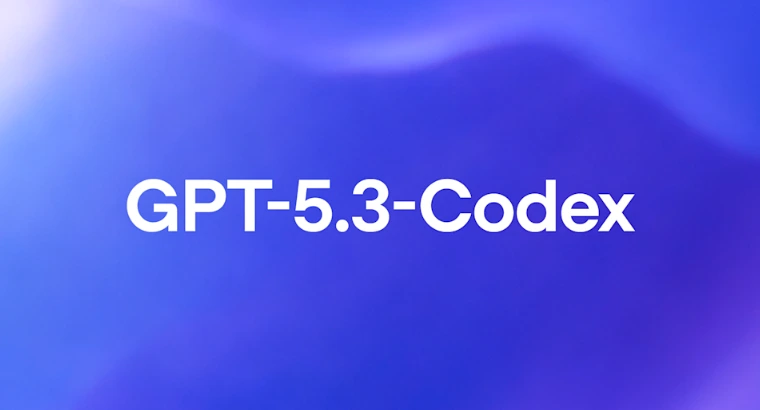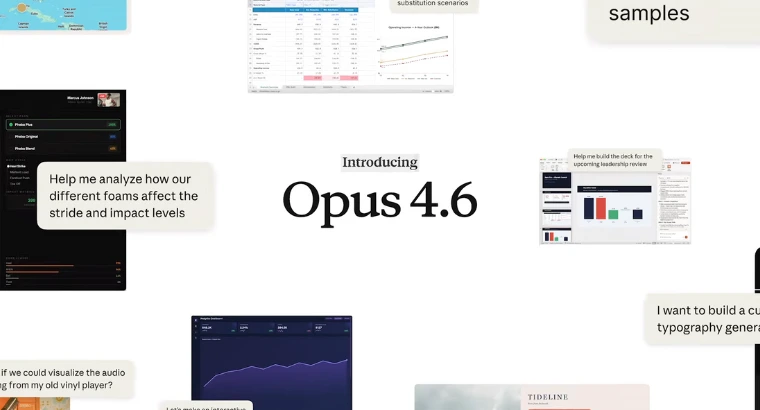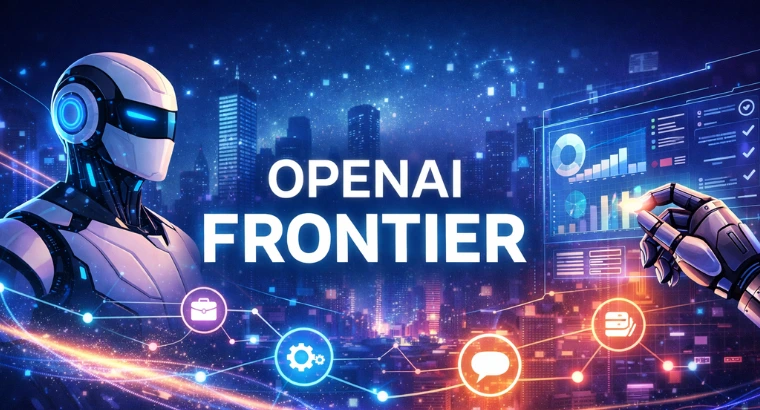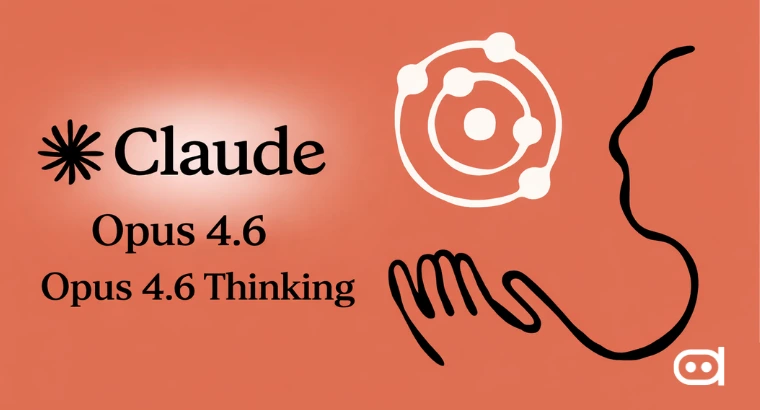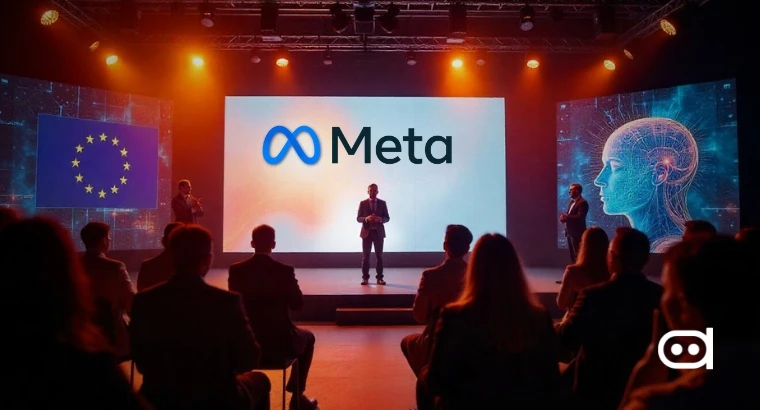
Key Highlights:
- The UAE leads global AI adoption, with 59.4% of its working-age population using AI tools daily.
- Microsoft’s AI Diffusion Report reveals over 1.2 billion people now use AI globally, the fastest tech adoption in human history.
- Regional divides persist, with language barriers and infrastructure gaps slowing AI adoption in South Asia and Africa.
AI has been a hot topic over the last few years or so. No wonder, countries around the world are gradually witnessing an increase in the use and adoption of the technology. That’s largely also happening because of the launch of various generative AI models, along with some of the top AI tools. Earlier this year, the UK government expanded its AI Safety Institute, while the US saw federal agencies mandate AI risk management frameworks.
That’s not all; major AI giants like OpenAI, Anthropic, and Microsoft, have been at the front and center to help countries with AI adoption. More importantly, they are also making nations aware of its risks by educating through different initiatives.
Now, a new AI Diffusion Report from Microsoft’s AI for Good Lab has now highlighted this global momentum in detail. In less than three years, over 1.2 billion people have started using AI tools, making it the fastest-adopted technology in human history. Speaking of AI adoption, the report also detailed which country is adopting the technology rapidly and where this momentum has been slow.
The UAE becomes the global leader in AI adoption
The United Arab Emirates (UAE) ranks number one when it comes to AI adoption. According to Microsoft’s report, about 59.4% of the UAE’s working-age population now uses AI tools such as Copilot, ChatGPT, Claude, Gemini, and Midjourney on a daily basis. Singapore, which ranks second just above Norway and Ireland, has a 58.6% AI adoption rate among its population. Microsoft credits the growing AI adoption trend across countries to years of strategic investment in digital infrastructure, education, and AI policy frameworks.
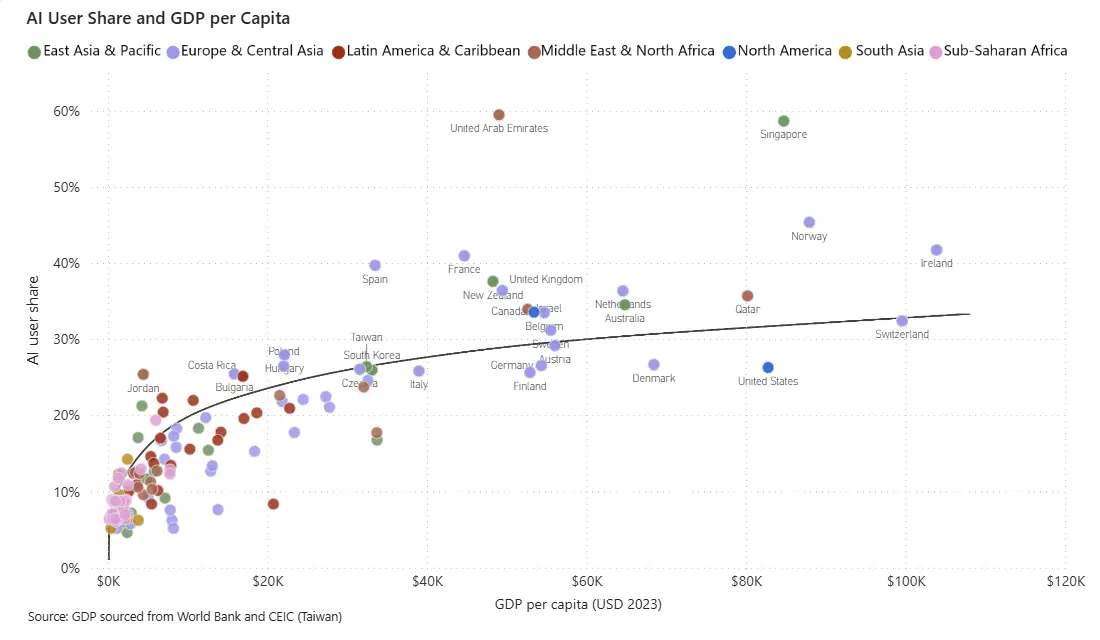
Speaking of the UAE, AI has been at the center of the government’s strategy. From integrating AI into government services, schools, and businesses, the UAE has shown the world that if policy and readiness is in place, a country can benefit at large.
Well, the future looks even greater. A report from Grand View Research (GVR) titled “UAE Artificial Intelligence Market (2024 – 2030)AI User Share” suggests that the country’s AI market size was valued at USD 3.47 billion in 2023. The future looks even great, as the report further projects that the market size would grow at a CAGR of 43.9% between 2024 and 2030.
Regional divide and global disparities
While the UAE’s figures are quite impressive, the report also indicates differences in AI adoption across different regions. Within the Middle East, Qatar (35.7%), Saudi Arabia (23.7%), Kuwait (17.7%), and Egypt (12.5%) are seeing steady growth but remain far behind the Emirates’ pace. Talking of Sub-Saharan Africa and South Asia, adoption rates remain under 10%, largely due to limited connectivity, computing resources, and linguistic diversity.
Microsoft’s report hints at language barriers as one of the key inhibitors of growth. Countries where low-resource or regional languages dominate have significantly lower adoption. Nearly four billion people still lack the basic digital infrastructure, from electricity to broadband, which is essential for accessing AI tools.
When it comes to infrastructure capacity, without a doubt, the USA and China are in a dominant position. Both nations share at least 86 percent of global datacenters.
Microsoft is expanding Middle East footprint
The Redmond giant recently opened its first Middle East AI for Good Lab in Abu Dhabi. The project aims to partner with nonprofits on pressing societal challenges across the Middle East and Africa. Established in 2018, the global AI for Good Lab program focuses on environmental sustainability, public health, disaster response, and human rights.
This expansion builds on Microsoft’s broader AI partnership with the UAE government and key regional players. Microsoft also solidified its ties with G42, the Abu Dhabi-based technology group, to accelerate cloud and AI infrastructure across the Emirates.
As AI is becoming a staple in everyone’s life, countries like the UAE are making sure to increase the adoption rate. And, it is doing that by working on necessary policies, infrastructure investment, and more importantly, educating citizens about AI. Overall, the Microsoft report shows how emerging nations are contributing and marching forward in the AI era.


